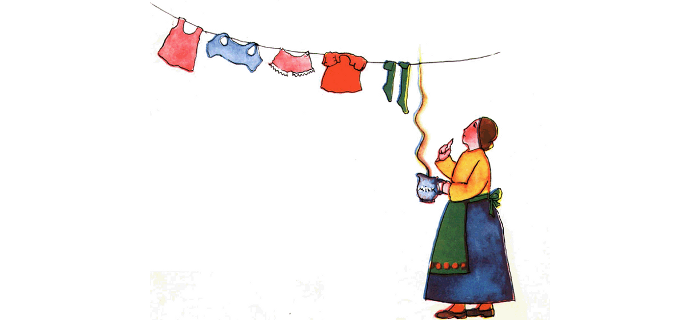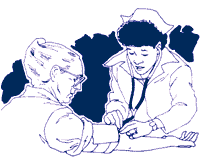Managing Your Elder's Medical Care

Managing the medical care of your elder is one of the most important aspects of caregiving. The elderly are commonly plagued with several chronic illnesses, and finding good medical care for common problems, and specialty care for the rare conditions may seem like a job unto itself.
Dr. Juergen Bludau, Medical Director of the Joseph L. Morse Geriatric Center in West Palm Beach, Florida says that because the elderly usually have multiple chronic conditions, and because the diseases present themselves differently in the senior population, it is very important to find a primary caregiver with experience treating geriatric patients.
"Look for a physician who has experience in geriatrics. Prior to January 1, 1997, physicians were allowed to become board certified in geriatrics without any formal training. Since 1997, physicians are required to have fellowship training in order to sit for the board certification. I recommend that caregivers try to locate a physician with the latter certification."
Start surfing
He also suggests that caregivers become involved in the medical care of their family member. Research your elder's conditions on the Internet, or visit the library to gain a basic working knowledge of the medical issues you are facing, suggests Dr. Bludau.
Dr. Bludau reminds that it is always a good idea to accompany your family member to the doctor. "Four eyes and ears can see and hear better than two," he says. "The elderly can also become confused, and they retain less information than they used to. Often they may be afraid to ask a lot of questions of their physician," he adds. This is also an excellent opportunity to keep abreast of what is being done to manage your elder's medical conditions, or to ask questions about side effects, alternate treatments, and so on.
Patience, patience, patience
When finding a physician, find one that is interested in listening to your elder. "Elderly patients can present with the common complaint of just not feeling like usual," says Dr. Bludau, "and it is up to the physician to tease out what is really going on." This can require extra time versus the typical HMO office visit, Dr. Bludau warns, and some physicians are not willing to spend the extra time with elderly patients.
He also suggests the physician be willing to take phone calls from you or other family members who are concerned about your senior's medical condition. "There may be occasions when you have a quick question about medication or something that can be easily answered over the phone," adds Dr. Bludau, "and the physician should be willing to answer those questions without requiring an office visit."
He also laughs that some of his senior patients take a long time to undress, and require extra time in the room to get dressed after the exam. "A geriatric physician should be used to all these things, and not be upset about them."
What's important
Dr. Bludau warns that it is very important to bring all medications to the doctor, every time you visit with your elder. "Over the counter medications are especially important because they may cause drug interactions," he cautions. Even drugs like aspirin or Tylenol should be brought, with a listing of when they are taken, and in what dosage.
"Perhaps the most important thing to remember when you are dealing with your elder's medical care is that the physician should be concerned with managing the conditions rather than curing them," Dr. Bludau says. "If I was treating a 40-year-old patient with heart disease, I would want him to eventually be able to walk up a flight of stairs without any trouble," says Dr. Bludau. "However, in an 80-year-old patient, I may just need to have her walk to the kitchen and back."
He says that the management theory of care is especially important because the number of medications required to treat all your elder's illnesses can cause debilitating side effects. Incontinence, dementia, and lack of energy are all serious side effects that change the quality of life for your elder.
Dr. Bludau suggests that physicians focus on functionality rather than on treatment. "If my 80-year-old patient used to be able to go shopping and to church, and my advised treatment causes her to become incontinent, afraid to leave the house, I haven't done her any favors," he laments. "I would do much better reducing the amount of her medications, managing her heart disease rather than aggressively treating it, and allowing her to continue functioning."
Dr. Bludau admits that finding such medical care can be a real challenge in this era of managed care. However, setting high standards is never wrong, and caregivers should work to receive the best possible care for their family member. He suggests that caregivers constantly assess the standard of care being provided to their elder, and make changes if there seems to be a problem. "No situation is ever perfect, so focus on the quality of life your family member is enjoying as a result of the physician's care."
Sheri Wallace is editor of ePregnancy Magazine, living in Tucson, Arizona. She has written non-fiction, information and travel articles for magazines and newsletters. Visit her website at http://sheriwallace.hypermart.com.
